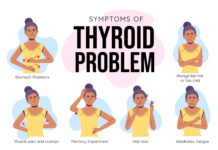Ms. Soumita Biswas, Chief Clinical Nutritionist, Aster RV Hospital After the completion of any form of exercise, or from any injury to ill, the focus is usually placed on rest, physical therapy, and medication. Initially, nutrition, a very important factor, might be overlooked then. Our intake of food can play critical healing roles to the body’s ability to rebuild and recover. Proper nutrition patterns are fundamental to optimal recovery and overall health and play a significant role in immune function and muscle capacity.
Nutrition and Healing-The Scientific Background
Various nutrients must exist in the body to embrace the chances of proper healing. Proteins are important in healing because of their muscle-regenerating role. Fats, more so the beneficial omega-3 fatty acids, calms inflammation and boosts immune response.
While in some state of repair due to the injury or stress one is undergoing through, the body is essentially working harder to be able to pace up in the healing. So this increased need for energy and nutrients could be the reason why lots of people always feel hungrier than usual in their recuperative times. The shortage of especially nutrients would, therefore, slow the healing process, reduce immune function, make someone feel extremely tired, and postpone a complete eradication of what would otherwise be symptoms of an immune system/energy-related deficiency.
Also Read: Quantum Sensing Hub at IIT Bombay kick-offs operations
Key Nutrients in Recovery
Protein –
The conventional belief is that protein happens to be the major food for recovery. Persuasive of this consideration is the case we take from muscle fibers, essential during healing from injury or intense persons on the rope. The protein adjoins in the repair and regeneration of those fibers in effect promoting muscle formation and general strength. Further, the amino acids, the backbone of proteins, are indispensable to the immune system, able to lower infection level throughout recuperation. This is why we need lean proteins like meats, fish, eggs, beans, and tofu are excellent sources of protein in our food.
Carbohydrates –
Mainly, carbohydrates fuel the body. As energy needs get higher in a body trying to recuperate from intense physical activity or an injury, carbohydrates come to recharge used-up glycogen stores—usually consumed during any type of exercise or accident—and give energy to rebuild and heal muscles. Opt for complex carbs like whole grains, vegetables, and fruits to allow energy to move steadily into the body.
Fats that Are Good for Health –
Fat, especially omega-3 fatty acids—salmon, walnuts, and flaxseeds—have anti-inflammatory properties that help support in the healing process. Chronic inflammation could be the ultimate prevention for recovery through delaying tissue repair. Omega-3 fatty acids help to more accurately balance inflammation and reduce pain from injury.
Vitamins and Minerals –
Certain vitamins and minerals are highly important for healing signals. Vitamin C is vital for collagen synthesis and tissue repair. It also enhances the immune system and helps the body fight off infections during the healing process. Zinc plays a major part as a mineral needed for immune function and to speed up the wound-healing process. Foodstuffs that provide the body with such substances include citrus fruits, berries, leafy greens, and nuts.
Hydration –
It is essential that adequate water is provided in the recovery phase. It serves to transport nutrients to cells, remove waste products, and keep cells alive. Dehydration can slow down the healing process, increase fatigue, and slow muscle recovery. As such, drink enough water throughout the day, especially when healing from an injury or through heavy physical work. Online Courses with Certification
Online Courses with Certification
Nutrition Impacts on Immunity
Nutrition will not only pave the way to physical recovery, but also soars immunity, which is the other important role-player during the healing of a human body. Proper nutrient intake supports the function of the immune system through the rapid repair of injury or illness. In addition, these antioxidants, along with vitamins and minerals, can create a blanket of protection over the white blood cells in the body and, therefore, indirectly supplement the immune system of the human body, especially when the body has utilized its energy reserves of glucose and fatty acids.
Conclusion
In the healing process, learning to appreciate nutrition helps a great deal. If healing from an injury, getting over illness, or recovering from a strenuous physical workout, with just the right combination of foods the healing process may be hastened dramatically and the individual might be more likely not to relapse. By consuming plenty of healthy, nutrient-dense foods of proteins, carbohydrates, good fats, vitamins, and minerals, we allow our bodies to make full repair at a faster pace that, nonetheless, is efficient.
Platforms like EasyShiksha.com offer valuable courses that can help you gain the necessary skills.






































































